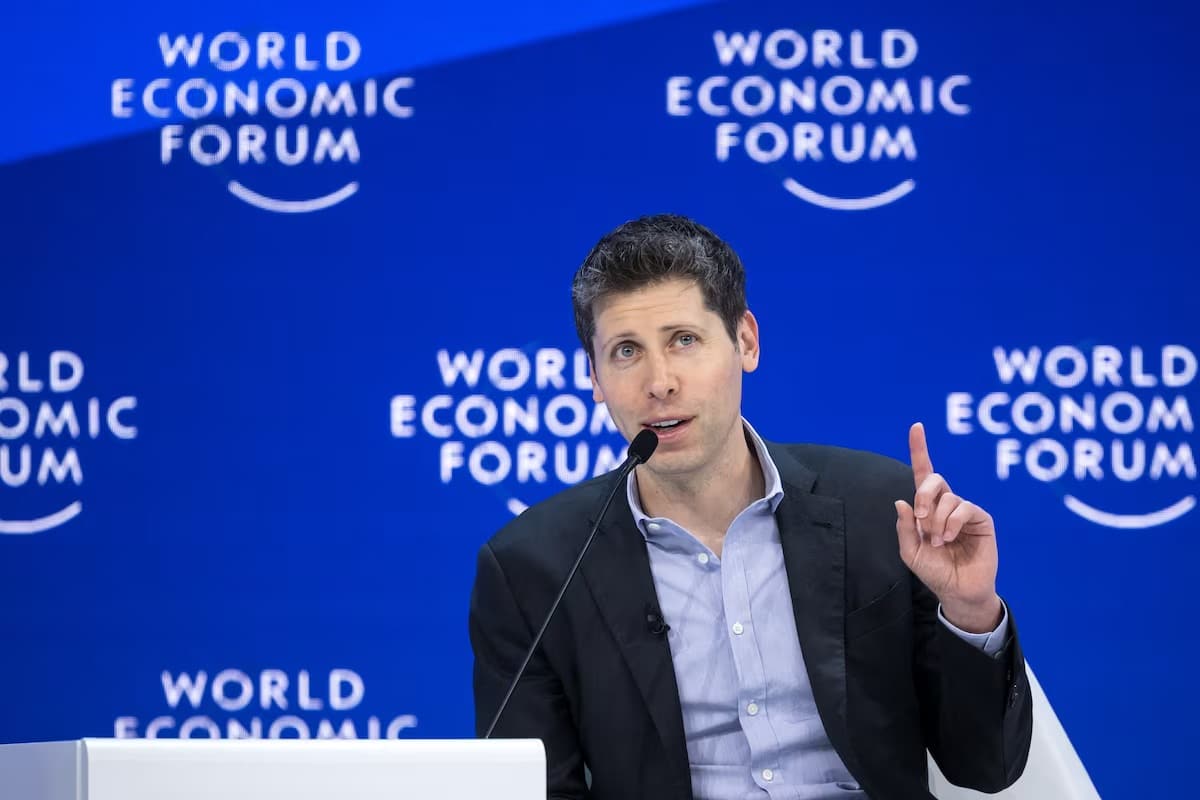Davos: artificial intelligence at the core of concerns

Artificial intelligence was the uncontested star of the 2024 Davos forum. The IMF unveiled its report analyzing the impact of this new technology on the economy and politics on a global scale.
A summit meeting to inaugurate 2024. Literally, as from January 15th to 19th, 2,800 businesspeople, intellectuals, and political figures gathered in the Swiss mountains for the World Economic Forum (WEF), also known as the Davos Forum, under the chairmanship of the octogenarian German economist, Klaus Schwab. Among the guests, more than 60 heads of state participated in the annual event around the theme “Rebuilding Trust and Improving the State of the World.”
This year, the WEF agenda dedicated many sessions to issues related to artificial intelligence (AI) to prepare the world for the era of this “4th industrial revolution.” Six years after his last participation, Emmanuel Macron returned to the Forum to represent France and Europe, highlighting the need for investment in defense, green economy, and artificial intelligence. He was accompanied by twenty CEOs of French Tech startups, including Mistral AI, the new French unicorn, a European competitor and open-source version of Open AI (parent company of ChatGPT, owned 49% by Microsoft).
Artificial Intelligence Raises Concerns
The baron of AI, Sam Altman, CEO of Open AI, was also present. Without hiding his ambition to develop a general AI (or strong AI, having succeeded in equaling or surpassing humans, whose definition is still vague), he invites leaders to be aware of the stakes and risks. “This is a very powerful technology and we cannot say for sure what will happen. Not being cautious and not grasping the seriousness of the issues would be a mistake,” he explained.
Even the Chinese Prime Minister, Li Qiang, is concerned about the development and importance of AI in our modern societies. Despite his expertise in social control and mass surveillance practiced in China, he urged Antonio Guterres, UN Secretary-General, to regulate artificial intelligence globally. “It’s a double-edged sword. There are red lines that must not be crossed in terms of ethics and security,” he warned during his speech.
IMF Report: GEN-IA
The International Monetary Fund (IMF) took the opportunity at the WEF to share a rather alarming report titled “Gen-AI: Artificial Intelligence and the Future of Work.” According to experts, despite the uncertainty of the consequences of implementing AI, its scope is likely to be comparable to the widespread use of electricity in the 19th century, both economically, politically, and in terms of versatility. The productivity gains linked to AI are estimated by IBM at 4 trillion dollars worldwide. Its impact is expected to concern about 60% of jobs in developed countries, leading to the adaptation of many jobs, especially in the tertiary sector. “Women, with their strong presence in the service sector, and highly skilled workers, generally employed in professions requiring high cognitive ability, are more exposed to AI,” write the IMF experts. “Identifying new skills and those that will become obsolete is crucial. Skills transferability and internal mobility are key challenges for adapting the job market to technical evolution. It is essential to ensure that your employees remain ‘relevant’ and employable,” predicts Denis Machuel, CEO of Adecco, during The Race to Reskill conference at Davos. According to Goldman Sachs, about 300 million jobs could completely disappear globally.
These abrupt and large-scale changes in our societies must be approached with the utmost caution to maintain a climate of peace. “During the transition, job displacement and changes in income distribution could have significant implications for political economy. History shows that economic pressures can lead to social unrest and demands for political change. Ensuring social cohesion is paramount.” warn the experts in the Gen-AI report.
Read also> CES 2024: THE HIGH-TECH INNOVATIONS NOT TO MISS
Featured photo: Sam Altman at Davos ©Fabrice Coffrini
Curieuse et dynamique, Lhou Lagrange est constamment à la recherche de nouvelles aventures. Elle s’intéresse principalement aux nouvelles technologies, aux sciences sociales et à la géopolitique pour décrypter les tendances sociétales et rester agile. D’une âme polyvalente, elle combine ses connaissances et ses compétences pour servir sa jeune plume.






